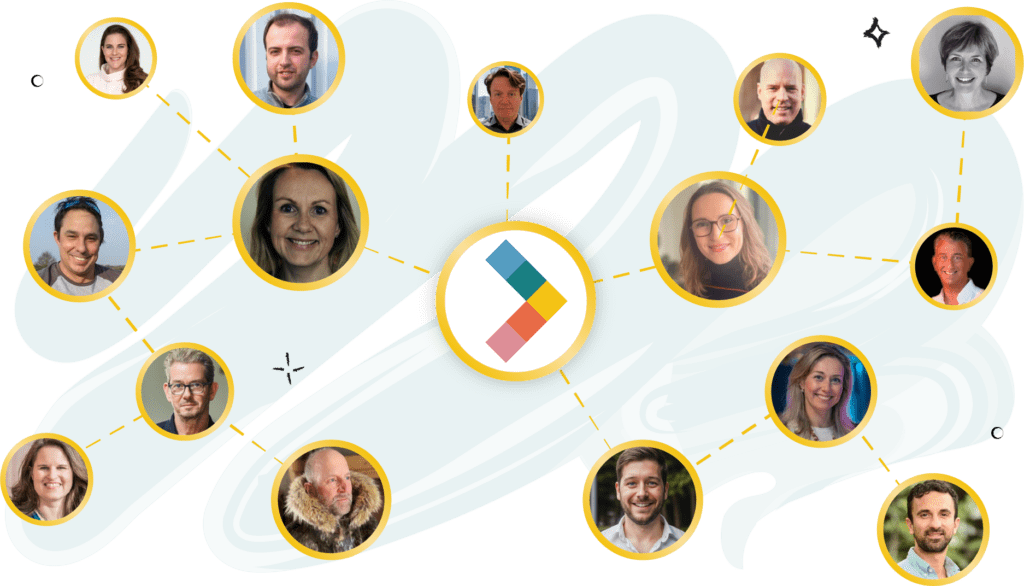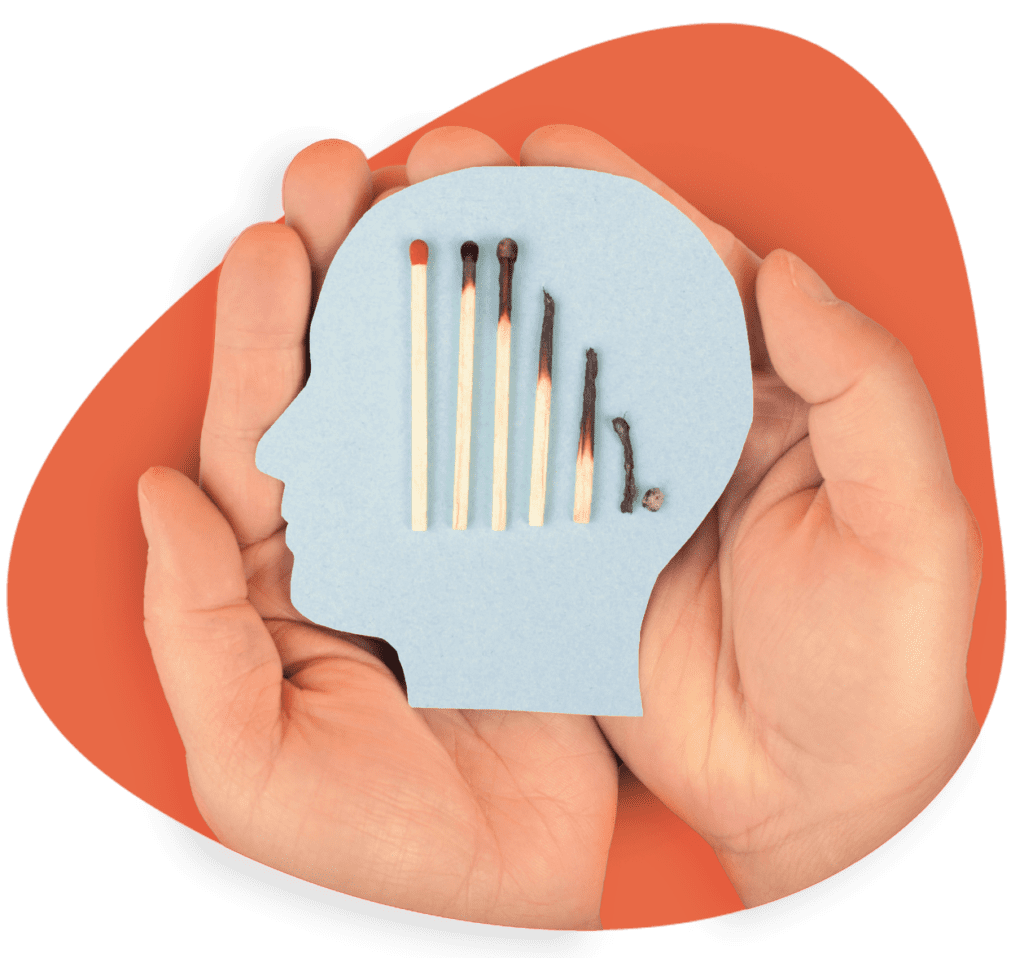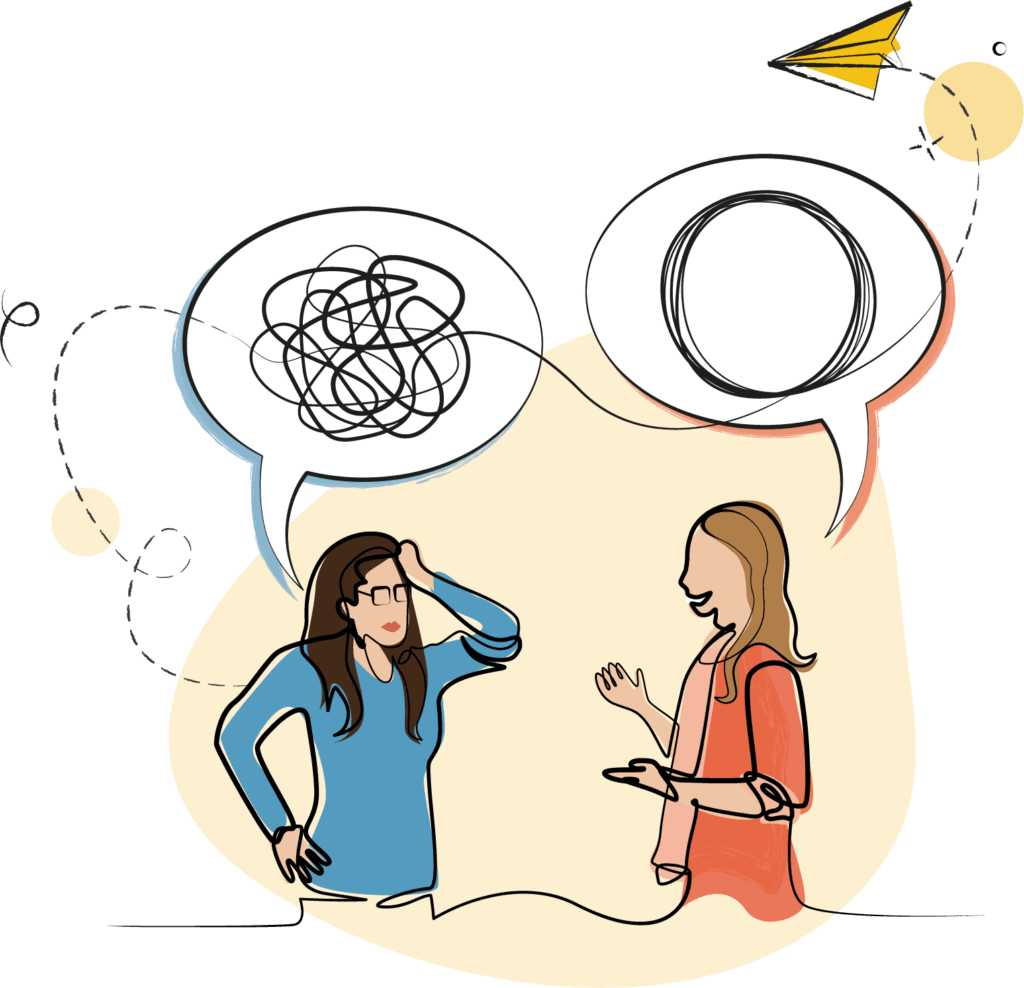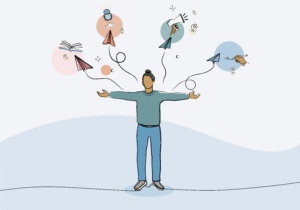Caoimhe Kelly
I never planned on becoming a mentor. I was a shoe designer turned lecturer supporting startups and SMEs in the footwear and creative industries. Then I had a brief dalliance as a fractional head of product and co-founder of an automotive accessory startup – and by dalliance, I mean a bit of a car crash.
It was a trial by chaos that taught me a whole lot about due diligence and red flags, but it did little to dampen my commitment to championing the entrepreneurial innovators and trouble-makers that are courageous enough to reclaim creativity and sustainable business practices back from the titans.
If anything, it fuelled that fire even more
So when Fiona Chorlton-Voong reached out and encouraged me to join The Portfolio Collective’s Mentorship Programme, it felt like the logical next step. At the time, I was picking up regular lecturing gigs and working with my dream footwear client. As far as my mission to never work for a corporate again was concerned, things were looking good. But this programme was an opportunity to flex my mentoring muscles and build a deeper knowledge of the startup world. It was a new challenge and I was excited to see what would come of it.

What surprised me was not just how much I learned about the complexities of being a founder – of which there are many – but also how much I learned about myself, my cohort and the ways in which we can all support each other.
Mentorship is a powerful thing, especially when done correctly, and with so many startups entering the scene, there’s never been a better time to take on this pursuit.
Here are a few of the things I discovered through the programme about the startup landscape (and about myself).
We should always be championing the innovative thinkers and dreamers
It’s not easy being a founder, especially in 2024. The global economy is uncertain at best, and while the UK may not technically be in a recession, growth is slow, adding to an ever-increasing list of concerns around the cost of living, market volatility, geopolitical tensions, climate change and dramatically rising rates of redundancy.
Suddenly, the age-old question, ‘But what if it doesn’t work out?’ seems a lot more daunting.

But here’s the thing, no time will ever be perfect. If anything, this uncertainty reflects that the way things were was far from sustainable or equitable. In fact, at times like this there’s more hidden opportunity for new businesses, not less. Why not take our lead from companies like Airbnb, Microsoft, Disney, Slack and Instagram, all of which were founded in times of uncertainty?
No founder should have to operate in a silo
These days, there are an abundance of resources and tools to help guide founders and drive innovation across all industries, many of which were born from the recent AI boom to help us be more focused, organised and strategic in the way we work.
But the most untapped resource out there is the growing pool of mentors with lived experience of building or bolstering a company – and they have the battle scars to prove it. Add to that unparalleled access to freelance marketplaces and communities, fractional talent and new ways of working and suddenly we, as mentors, have a wider network of expertise and support that we can provide.

The struggle is real - and that’s where mentorship can make a difference
But it’s not just about having a powerful network and access to the right talent. It’s about understanding the emotional and psychological toll that entrepreneurship takes on us as humans. According to a recent survey by Sifted, startup founders are ‘overworked’, ‘exhausted’ and ‘broken’ to the extent that many are considering leaving their businesses in the next year.
5% of founders told us they thought their mental health was ‘bad’ or ‘very bad’ at the moment. 85% said they’d experienced high stress in the past year, while 75% said they’d had anxiety in the same period.
– Sifted
While burnout is rising across all industries and job titles, founders’ constant hustle can leave them particularly vulnerable. They operate under a myriad of expectations, including tight financial constraints, limited resources, investor pressure, board pressure and a severe time deficit. More often than not, work-life balance is a thing of fairy tales while they focus on building and scaling both the product or service and the organisation at once.
Another report conducted by Balderton Capital found that 72% of respondents found it hard to prioritise wellbeing, and 61% said finding support was difficult and that having access to external help could prove useful.

Given the relentless pressure on founders, their sense of isolation and the resulting distress and anxiety – added to the fact that we desperately need more innovators and risk-takers across all industries – it is suddenly all too apparent that there’s never been a better time to roll up our sleeves and get behind them.
How the Mentorship Programme gave me the tools I needed to support founders
There’s no doubt that the programme was comprehensive. It covered everything from emotional intelligence and personality preferences to fundraising, financial planning, fostering leadership and enabling growth.
But what was really special, and inspiring, was the opportunity to engage in peer-to-peer learning alongside the expert-led sessions. In the first week of the course, we were placed into smaller ‘accountability pods’ that were encouraged to meet weekly to unpick problems, provide feedback and discuss the learning for even deeper understanding. Plus, there were plenty of tasks based on real-world founder challenges, which provided an opportunity to leverage and learn from the skills and experience of our pods before sharing with the greater group, which was always a rich source of learning.
But perhaps the highlight of all of this – at least for me – was the pro-bono mentoring experience and case study that formed the final part of the accreditation. The team matched each of us with a startup founder based on our unique skills and experience, and over the course of four weeks we got to work together to tackle challenges, setbacks, successes and founder wellbeing in real time.

Recognising and reflecting on my own strengths and limitations
At the end of each week there was an opportunity for written self-reflection. I’ll admit I was more than a little daunted. But by fully engaging in this practice I was reminded that it’s more than okay to write things down, think them through and change your perspective with more information down the line.
Embracing this is what helped me work so closely with my mentee, who funnily enough looked just like me (or me like her). Long brown hair, red lips, dark rimmed glasses, navy sweater, layered necklaces – it was a bit like looking in a mirror.
It would have been easy for me to tell her how I’d done things and expect her to follow suit. But the real value was in learning about her and her business, sharing the similar challenges I’d faced and the tools I’d used to overcome them, then giving her the space to review, reflect and move forward in a way that was best for her and her team.
The delicate balance of mentoring someone is not creating them in your own image, but giving them the opportunity to create themselves.
– Steven Spielberg
Thinking about becoming a mentor? Then go for it!
Did I worry that my short time as a co-founder might not be enough to make me a good mentor? Of course I did. But out of that experience, my empathy and compassion for entrepreneurs who really want to make a difference grew. And, let’s face it, there’s just not enough exited unicorns to go round.
Thankfully, there are plenty of good humans out there with valuable industry expertise – design, tech, marketing, finance, fundraising, ops, as well as having startup and entrepreneurial experience – who want to be part of the change. If that sounds like you then I highly encourage you to check out the Mentorship Programme at TPC.
The cohort-based nature of the course created such a collaborative and enriching learning environment. It was both challenging and invigorating and the relationships built carried long past the final session. I’m now part of a community that is steadily growing and filled with all kinds of industry experts, seasoned founders, coaches and entrepreneurs who will happily pitch in if you need an expert view on a particular challenge.
I’ve grown in so many ways since taking the course, not only as a mentor but also as a teacher, a consultant and a portfolio professional. I’m so glad I took the opportunity when it came my way and I hope that you will too.
Think this sounds like the right path for you? Come along to our monthly Community Welcome Call for new members to find out what a portfolio career could look like and how The Portfolio Collective can help you take those first steps towards professional success – and don’t forget to connect with our community!





